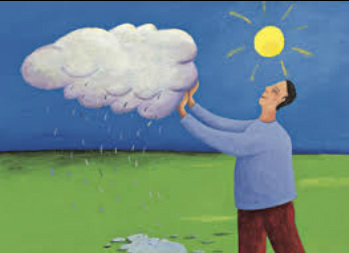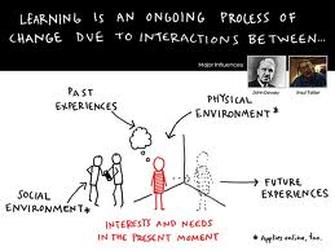
For people like me who have spent much of their lives working with ideas one source of commitment is to ideas that we value which we feel can make a difference either by contributing useful new knowledge or inspiring and supporting new practice. But interesting ideas alone are not enough to be committed to an idea requires investment of time and energy to give them meanings that engage with your purposes, values and beliefs.
In 2006, at the start of our SCEPTrE1 project at the University of Surrey, I commissioned an artist (Julian Burton) to draw a picture on our wall to help us visualise the educational world we were trying to prepare students for. The picture which I included in my last blog turned abstract ideas into something that was more of a vision that inspired commitment and action through which more defined ideas about lifewide learning flowed. Over the years since 2006 I have devoted much time and energy to thinking about the idea of lifewide learning, writing and talking about it, developing practice to support it and doing many things to promote the idea and action and reflect on it through the events and happenings in my own life.
Commitment to an idea is clearly connected to our will to do something with the idea. In doing something with it you continue to develop and apply it and learn through the experience and the process. So commitment to an idea makes you own, value and believe in it which in turn sustains your motivation and commitment to it. Commitment inspires a virtuous circle (a recurring cycle of events, the result of each one being to increase the beneficial effect of the next). At this point in my life I cannot imagine abandoning commitment to the idea as it has become part of my core beliefs.





 RSS Feed
RSS Feed